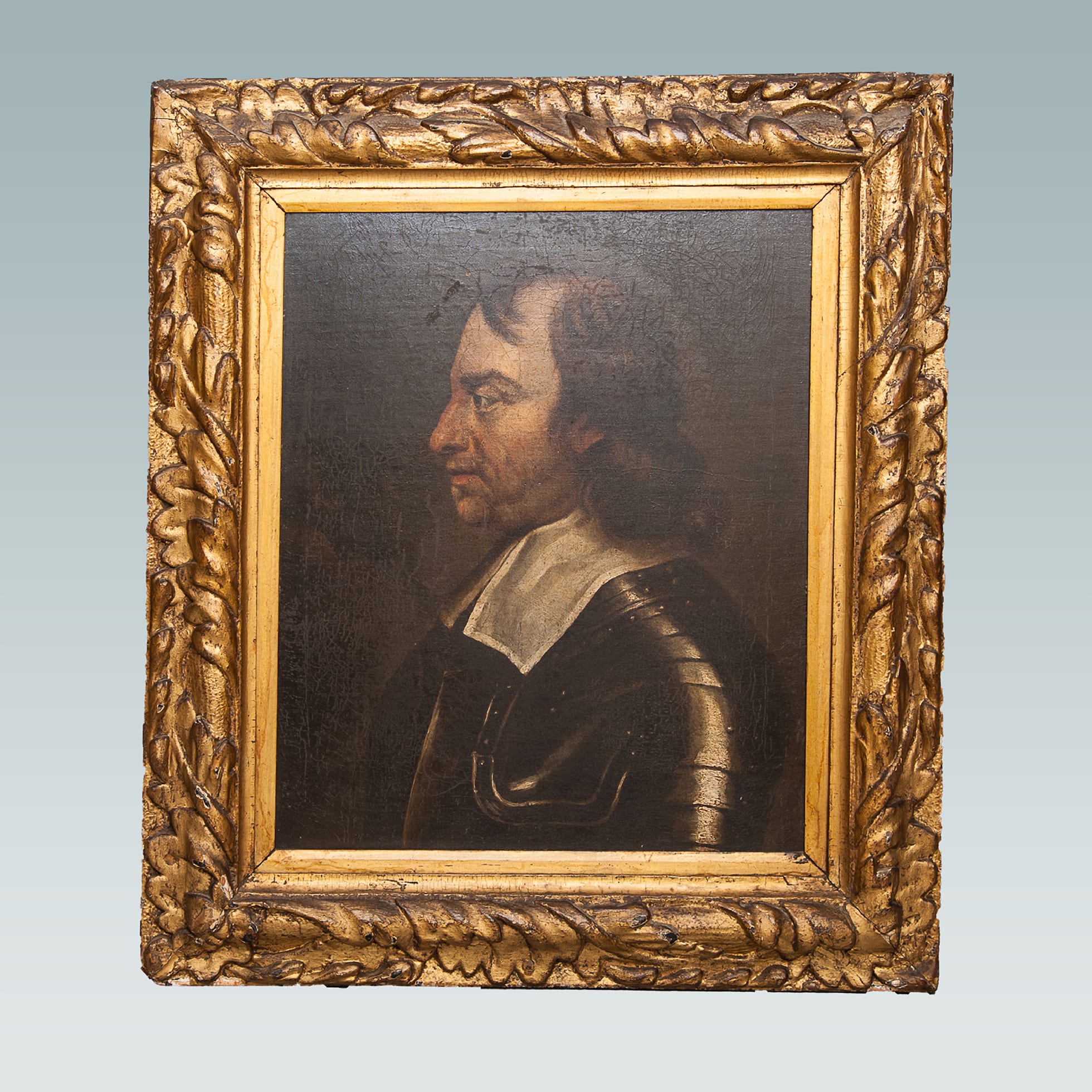17th century portrait of Oliver Cromwell
Circa 1653 - 1658
England
W 24 1/2 × H 27 3/4 × D sizes include frame
Stock # Marh533
SOLD
17th century oil on canvas of Oliver Cromwell in profile, with a gilt wood 17th century carved frame.
Oliver Cromwell was born on 25 April 1599 in Huntingdon, Cambridgeshire into a family of minor gentry and studied at Cambridge University. He became member of parliament for Huntingdon in the parliament of 1628 - 1629. In the 1630s Cromwell experienced a religious crisis and became convinced that he would be guided to carry out God's purpose. He began to make his name as a radical Puritan when, in 1640, he was elected to represent Cambridge, first in the Short Parliament and then in the Long Parliament.
Civil war broke out between Charles I and parliament in 1642. Although Cromwell lacked military experience, he created and led a superb force of cavalry, the 'Ironsides', and rose from the rank of captain to that of lieutenant-general in three years. He convinced parliament to establish a professional army - the New Model Army - which won the decisive victory over the king's forces at Naseby (1645). The king's alliance with the Scots and his subsequent defeat in the Second Civil War convinced Cromwell that the king must be brought to justice. He was a prime mover in the trial and execution of Charles I in 1649 and subsequently sought to win conservative support for the new republic by suppressing radial elements in the army. Cromwell became army commander and lord lieutenant of Ireland, where he crushed resistance with the massacres of the garrisons at Drogheda and Wexford (1649).
Cromwell then defeated the supporters of the king's son Charles II at Dunbar (1650) and Worcester (1651), effectively ending the civil war. In 1653, frustrated with lack of progress, he dissolved the rump of the Long Parliament and, after the failure of his Puritan convention (popularly known as Barebones Parliament) made himself lord protector. In 1657, he refused the offer of the crown. At home Lord Protector Cromwell reorganised the national church, established Puritanism, readmitted Jews into Britain and presided over a certain degree of religious tolerance. Abroad, he ended the war with Portugal (1653) and Holland (1654) and allied with France against Spain, defeating the Spanish at the Battle of the Dunes (1658). Cromwell died on 3 September 1658 in London. After the Restoration his body was dug up and hanged.

